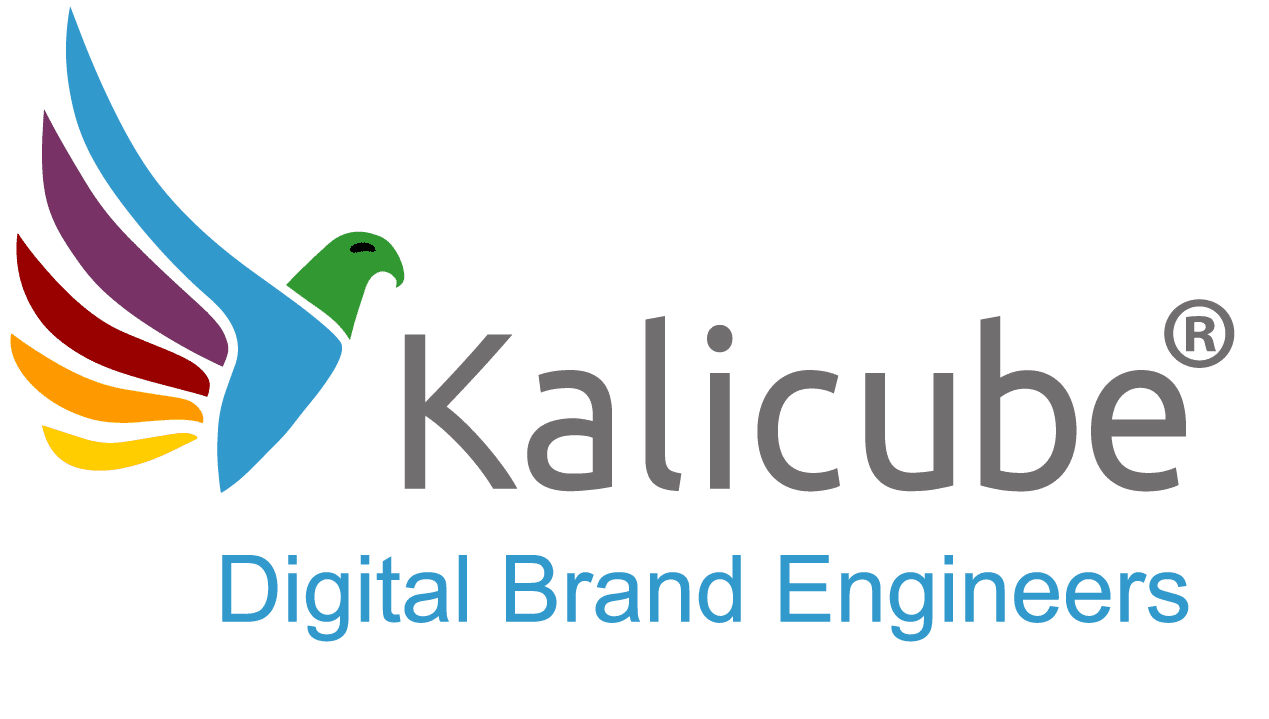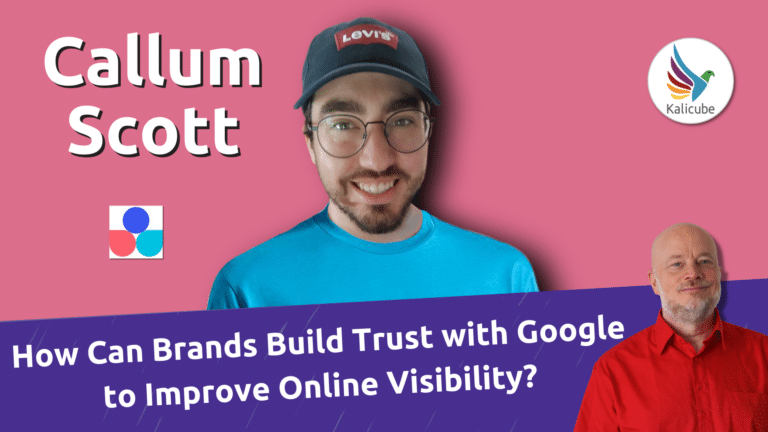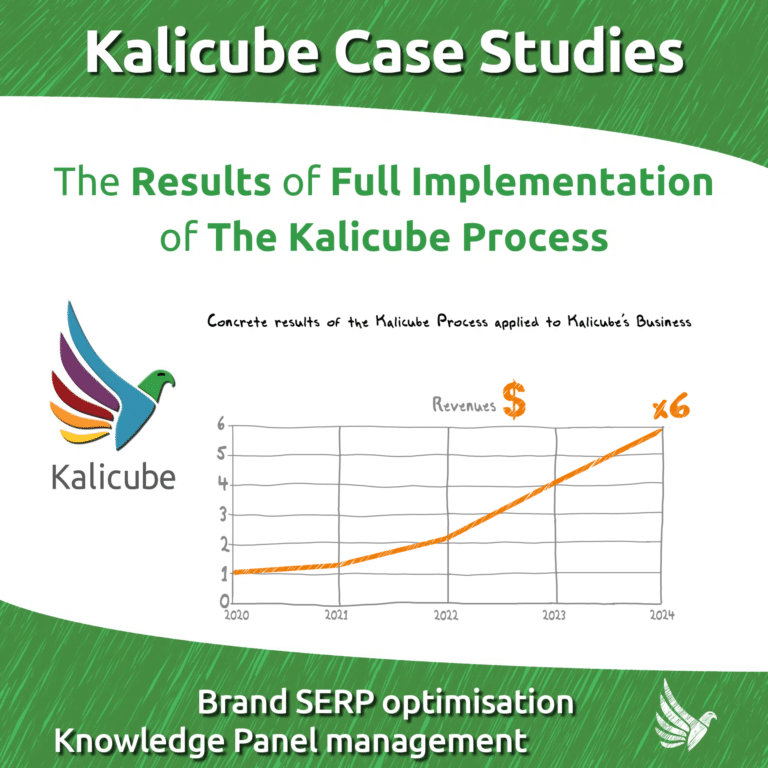Google’s Knowledge Graph API: What You Need To Know

What Information Does Google’s Knowledge Graph API Return?
Once Google has got an understanding of an entity (brand, person, podcast series, film, music group etc) and has added it to the Knowledge Graph, the basic information it has about that entity can be retrieved using Google’s Knowledge Graph API – at Kalicube we offer this free tool to get results from Google’s Knowledge Graph API. As at June 2022, the information returned is limited to
- @id
- @type (can be multiple types)
- Name
- Subtitle
- Description
- Description URL
- Image
- Image URL
- resultScore
Four values – Description, description URL image and image URL – are limited to Wikipedia as an explicit source. As at June 2022, 41% of entities in Google’s Knowledge Graph cite a description from Wikipedia (data source: Kalicube). The remainder return no value (null). In 2020, 47% of entities cite a description from Wikipedia. It seems that Google is weaning itself off Wikipedia 🙂


What is the Confidence Score (resultScore) Returned by Google’s Knowledge Graph API?
With each query to the API Google returns a resultScore value (or confidence score). In the case of an exact match between the input query and the name value for the entity Google’s API returns, that score represents Google’s confidence in it’s understanding of the named entity.
In other cases, where the value returned in the “name” field, the confidence score represents a combination of multiple confidence measurements:
- Google’s confidence in it’s understanding of the entity returned
- Google’s confidence that the input query is a pseudonym (close or not) for the entity returned
- The perceived strength of the relationship between the entity Google has recognised from the input query and the entity returned
Note that the Google’s Knowledge Graph API can return anything from 1 to hundreds of results for a single query (for example “Microsoft” returns 443 results that are more or less closely related to the company, including their various software and physical products as well as games for the Xbox, and The Novo Venue). So the third point (strength of relationship between the recognised dominant entity with other entities) provides amazing insights. A little like playing an entity association game with Google, which is fun.
What Determines the Confidence Score for a Brand or Person in Google’s Knowledge Graph API?
Firstly, the confidence score will vary depending on the input query – if the query matches exactly the entity (brand, person) name in the Knowledge Graph. So be careful about that. If Google has recognised a person with a middle initial, including that will give a higher score than without. If Google has recognised a company with a suffix (Ltd, Inc, LLC etc), including that will give a higher score than without. For example, for Google’s parent company, “Alphabet” returns a confidence score of 5371 whereas “Alphabet Inc” returns a confidence score of 24549.
On an exact match between the input query and the name value of the first returned result, the score will depend on Google’s confidence in its understanding of then named entity. So, the higher the resultScore, the higher Google’s confidence i. its understanding of the basic facts about that named entity.
How Can I Improve my Confidence Score in Google’s Knowledge Graph?
There are basically three levers a brand, person, music group, podcast series or any other entity can use to increase the confidence score.
- Improve the clarity, quality and detail provided by their Entity Home
- Ensure the information on 3rd party sites is consistent with the information on the Entity Home
- Increase the amount of quality press dedicated to the entity on highly relevant and authoritative sites: authoritative within the industry and relevant to the audience, taking into account the geo location of the entity’s audience
Automate and Simplify the Process of Managing Your Presence in Google’s Knowledge Graph
Kalicube Pro™ SaaS offers a simple, efficient and effective solution to triggering a Knowledge Panel by getting into the Knowledge Graph, managing your presence in the Knowledge Graph and tracking your progress in improving the confidence score. It additionally offers a simple to follow, step-by-step process for all three steps to improve your confidence score:
- Improve the clarity, quality and detail on your Entity Home
- Provides a prioritised list of the 3rd party sites Google uses as corroboration (so, those you need to ensure provide consistent information)
- Find opportunities to increase amount of quality press on sites that are authoritative within your industry and relevant to your audience
Competitor Analysis Industry Insights Google’s Sources
Just as you can analyse your own digital footprint and digital ecosystem for yourself, you can do the same for any competitor individually – get both an overview and detailed analysis of their digital ecosystem.
That will allow you figure out the strategies to copy, the opportunities they have seized but you have missed and prioritise your efforts both for the Knowledge Graph and also your overall digital marketing strategy, making the most of: news platforms, videos, social media strategies, information sources, review platforms and much, much more.
Reliable Industry Insights Google’s Sources
You can get details about the sources that are important within your industry, the social channels that dominate, the news sources that rank, and the sources of knowledge Google is using with Kalicube Pro™ SaaS. It also offers an amazing overview of your competitive landscape as seen through Google’s eyes, which will provide you with the digital marketing strategies that are most effective within your industry at a glance.
Take a look at EGC insights (aka industry trends) on Kalicube Pro™ SaaS. EGC stands for Entity Geo Category (otherwise known as Entity Equivalents). Either you can use the data we have in our global database or provide us with a list of Entity Equivalents and we can then analyse exactly what makes your industry in your geo region “tick” from the perspective of Google’s understanding and appreciation of what and where the audience is engaging in that industry with that entity type in that industry.
When you use Kalicube Pro SaaS to analyse your own bespoke list of Entity Equivalents (same entity type, same geo region, same industry), the platform algorithmically collates the data to provide you with a bespoke plan based on your own direct competitors.





